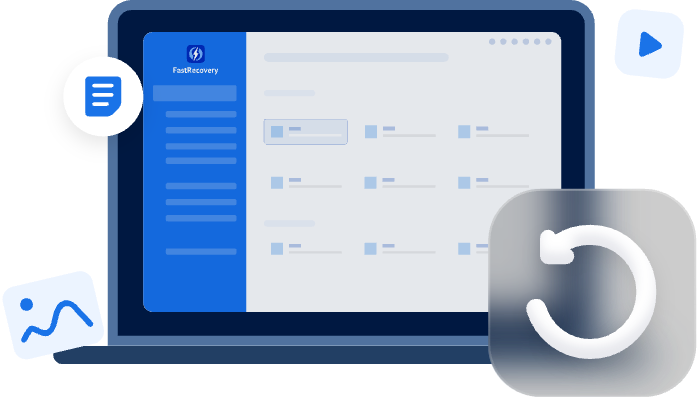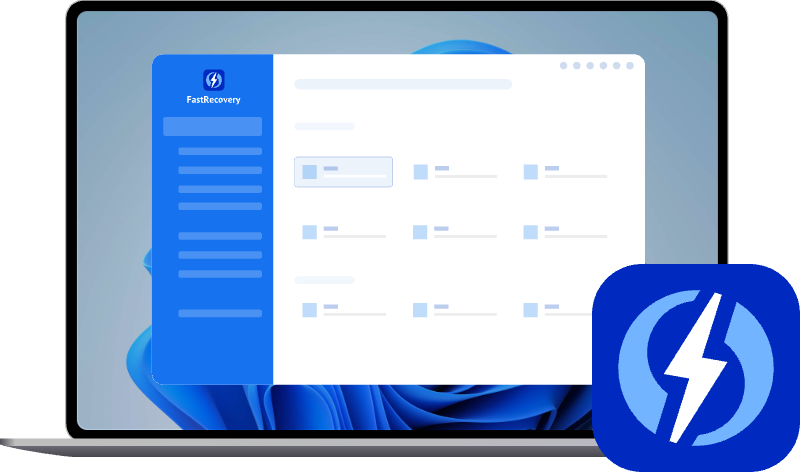USB Partition Recovery: Retrieve Deleted Partition with Ease
Are you looking for some tips for USB partition recovery? Here, this page shows how to recover lost or deleted USB drive partitions with professional partition recovery software.
Accidentally deleted USB drive partition
I used a separate 50 GB partition on my external drive for the Windows 11 installer. But when I installed Windows on it, it decided to delete all other partitions on that drive. I have done the exact same thing with w10 before, and this didn't happen. Is it obvious what I did wrong so that I won't do it again? How do I recover accidentally deleted USB drive partitions?
Have you ever experienced your USB flash drive partition has been inaccessible like the user above? USB flash drive, as the most common portable storage device, is widely used in storing personal data or transferring between different computers. Apart from transferring files, a USB flash drive can be used as a bootable or backup storage device. If you accidentally deleted USB hard drive partitions, it is possible to get them back if you use the correct methods.
Why need to perform USB partition recovery?
The capacity of USB disks varies from one to another. Partitioning the USB disk is an efficient way to organize data. Once one of the partitions is corrupted, the others are still kept safe.
Therefore, USB partition loss is no longer a small problem. The USB drive partition can get corrupted, lost, or deleted accidentally even after taking every precaution. When you encounter the following situations, it means you need to perform USB partition recovery.
- Accidentally deleting files from USB drive: Users’ mistake occurs in practically every situation, and it is difficult to avoid. Many of us may inadvertently delete vital information, and deleted files from USB drives do not appear in the computer's Recycle Bin.
- Partition loss: The partition might be invisible in Windows File Explorer or Disk Management, and the data in the partition get lost together. Partition loss can be caused by a corrupted partition table, disk repartitioning, accidental deletion, improper operation, etc. It requires you to recover partition table.
- Format USB partition: Formatting is the easiest way to delete everything in a partition, and many users use it to quickly free up disk space by formatting a partition that includes unnecessary data. However, sometimes users may select the wrong partition to format.
- USB partition gets corrupted: The file system of the USB partition becomes RAW, and it is no longer accessible. Generally, a corrupted UBS partition is the result of improper ejection from the computer, a power outage, weak USB ports, a virus, and so on.
- Virus & bad sectors. The malicious virus will delete files or partitions on USB drives.
How to restore lost/deleted partitions on a USB drive in Windows?
Your data is no longer protected by the Operating System after data loss from a USB drive. The USB drive space becomes available and can be used, which means the next copy operation, application installation, or even booting from the drive could overwrite your deleted files permanently.
Therefore, if you want to recover the lost USB partition, do not write anything to the USB drive. Then find an effective USB drive partition recovery tool to recover deleted USB partitions. AOMEI Partition Recovery could be your first choice. It is a safe and efficient solution to recover deleted partitions on the USB drive.
AOMEI Partition Recovery Wizard, a built-in utility in AOMEI Partition Assistant Professional, is created to recover lost or deleted partitions including FAT, NTFS, Ext2, Ext3, and Ext4 in Windows.
AOMEI Partition Assistant Professional is a versatile disk management tool that helps you manage disk partitions effortlessly. It is popular for computer users due to its laconic interface, efficiency & easy operation, and full functioning.
- Disk partition manager: resize partition, move partition, delete partition, merge partitions, split partitions, format partitions, allocate free space, create partitions, align partitions, migrate OS to SSD or HHD, etc.
- Converter & wizards: MBR/GPT converter, dynamic/basic disk converter, NTFS/FAT32 converter, convert primary to a logical partition, partition recovery, disk clone, APP mover, Windows to Go creator, etc.
To recover lost or deleted partitions in the USB drive, you can download the demo version below first and then follow the detailed steps.
Step 1. Select the lost USB partition and click Next.
Click Recover and choose Partition Recovery. Then, select the USB partition and click “Next”.
Step 2. Choose Fast Search. Then, click on “Next”.
Usually, It is recommended to select Fast Search, because it saves more time than Full Search. If it fails to find the lost or deleted partition, you can try Full Search again.
Step 3. Select the lost partition and click Proceed.
It will show the list of all missing or deleted partitions. You can select the one you want to recover.
Then you can open Windows File Explorer to check whether the lost or deleted partition in the USB disk is visible and accessible.
If the data in the lost or deleted partition hasn't been covered or overwritten by new data, it will be recovered as well. In some cases, you just delete some files from USB drives, and you can't find them in the Recycle Bin, you can try a professional data recovery tool- AOMEI FastRecovery to get the deleted data back.
Bonus tips: How to repair a corrupted USB drive?
If your USB or SD card becomes infected or broken, you need to check your corrupted USB or pen drive is detectable by your Windows PC. Windows provides built-in tools for error checking. Follow the steps to run error checking for file system errors.
Step 1: Right-click on the USB disk in Windows File Explorer. Select "Properties".
Step 2: Click on the Tools tab, and then click "Check" in the "Error checking”.
Step 3: Wait for the completion of the scan & repair process.
In addition, you can use the Command prompt to repair a corrupted USB by running CHKDSK scan to fix a RAW drive USB partition and repair the damaged file system. Follow the steps:
Step 1: Press “Win + R” and type CMD in the run Window.
Step 2: Enter the command: chkdsk [USB drive letter]: /r/f, and press Enter.
After the scan is finished, detach and reconnect the USB drive to check the drive is accessible. If the USB drive is still RAW, it’s severely corrupted. You need to find more solutions to recover the data with the help of professional data recovery tools.
Bottom line
How to recover lost or deleted partitions in a USB drive is at your fingertips. It's not so difficult to perform USB partition recovery if you choose the right method. AOMEI Partition Recovery Wizard is a highly recommended solution. Except for external hard disk partition, it also supports physical hard drive partition recovery.
The best way to keep data safe is to always make a regular backup of vital files. You can choose a reliable tool- AOMEI Backupper to protect your data from being lost, deleted, or corrupted.


